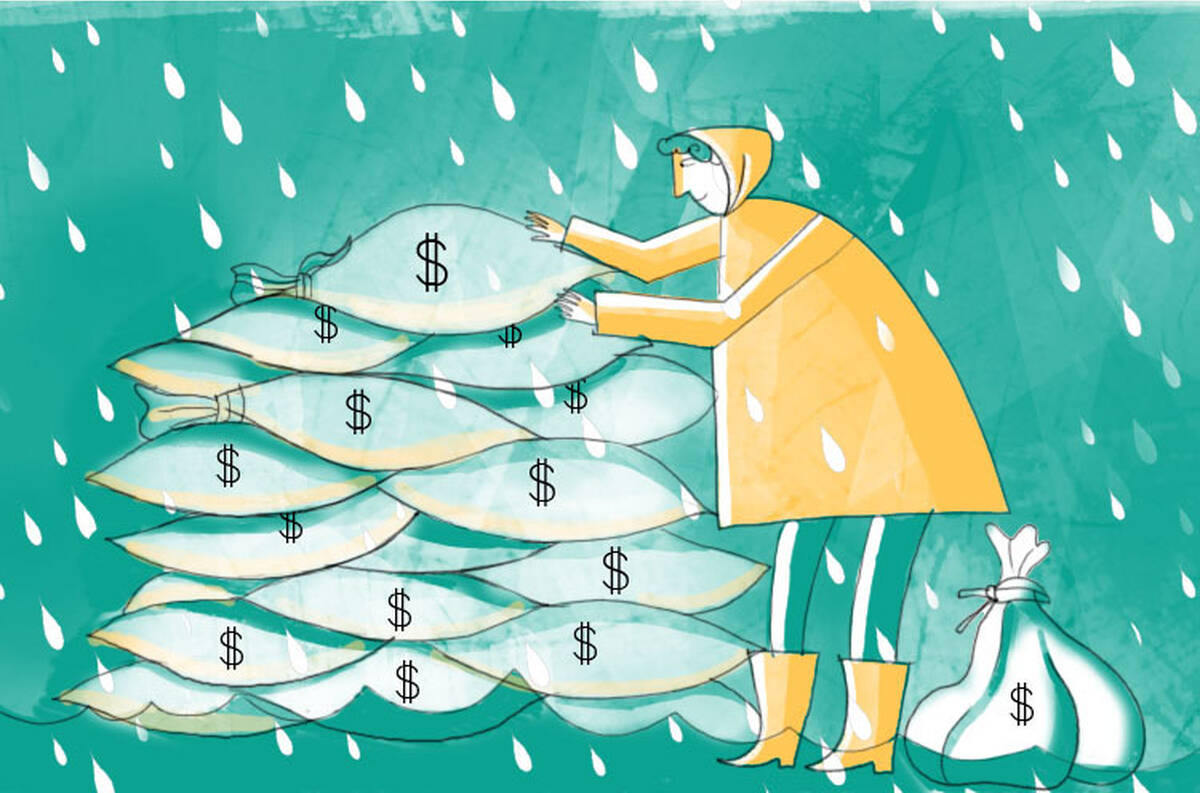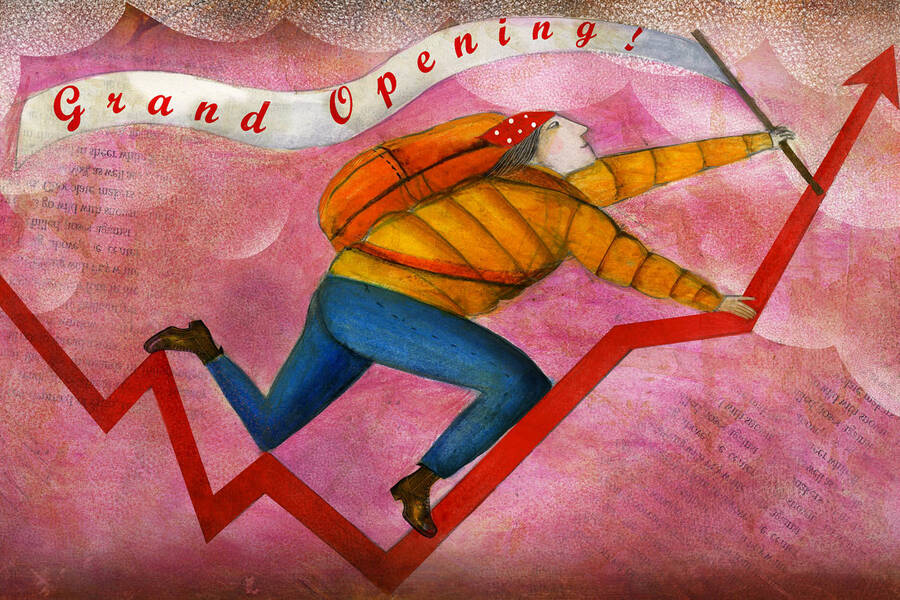Finance & Accounting Jan 4, 2018
Private Equity Helped Firms Weather the Great Recession
A new study shows that debt isn’t always a liability during a financial crisis.

Yevgenia Nayberg
There are myriad reasons why the 2008 financial crisis was so devastating. But the intuition behind most of them seems simple enough: the more debt you have, the worse shape you’re in.
Whether it is homeowners signing mortgages they cannot afford or investment banks buying and selling loans they know are going to default, “if you have more debt in a crisis, that’s not a good thing to have in general. This is just a logical fact,” says Filippo Mezzanotti, an assistant professor of finance at Kellogg.
But what about companies supported by private equity funds—a form of investment that usually involves adding debt to the company’s balance sheet? Is that debt a liability in a crisis, too?
“There’s a debate in the regulation area about this idea that private-equity activity may have exacerbated the crisis,” Mezzanotti says. “And there are good reasons to think that.”
Mezzanotti set out to understand what was truly going on. In a new study, he and colleagues examined private-equity-backed firms in the United Kingdom and found a different story. Private-equity-backed firms actually fared better during the Great Recession than comparable companies not backed by private equity.
The reason? Private-equity-backed firms may carry more debt, but they also enjoy privileged access to financing via their private-equity investors.
“It’s like if you have rich parents and you lose your job, you can kind of isolate yourself from some of these costs in the short run because you can get money from them and they can help you figure a way out of your issue,” Mezzanotti says.
Does Private-Equity Backing Make a Firm Weaker or Stronger?
Previous research has demonstrated the positive effects of private-equity (PE) financing on the performance of firms in PE portfolios.
“Essentially, once a company gets bought by a private-equity fund, we see improvement in their financial performance and their growth pattern,” he says. “But a lot of these studies focused on the 1990s or the pre-crisis 2000s. The question that comes naturally is, ‘Okay, maybe they’re taking certain actions that may be good in normal times—but what happens when things turn ugly?’”
The simplest way to determine whether PE-backed firms contribute to overall financial fragility during an economic crisis is to compare information about their performance to that of similar companies without PE backing.
“It’s definitely something that people haven’t thought about before—this idea that when there is this major financial shock, having private equity as a source of capital could be really precious.”
This data can be hard to come by. But Mezzanotti and his coauthors, Shai Bernstein of Stanford University and Josh Lerner of Harvard University, were able to gather it by examining firms in the United Kingdom, where financial reporting requirements are more expansive than in the United States.
The researchers analyzed detailed income reports and balance sheets of nearly 500 PE-backed firms in and around the time of the global financial crisis; they also assembled a matching sample of non-PE companies that were similar in size and financial profiles.
By comparing these two samples, Mezzanotti and his colleagues could empirically observe whether PE-backed firms were more or less economically fragile than companies not backed by private equity.
They found that while all the firms in both of their samples cut their investments sharply during the crisis, PE-backed firms did so much less than non-PE firms. In fact, the PE firms spent 5.9 percent more than the non-PE ones.
“If they were more fragile, we should expect that they’re cutting investment more” than non-PE-backed firms, Mezzanotti says. “This activity happened right away in 2008, and it seems to be relatively persistent in the following years.”
This primary finding, the researchers write, “suggest that companies backed by private-equity firms were more resilient in the face of the financial crisis” compared to their counterparts in the matching sample.
Dry Powder
Where is this resilience coming from?
The researchers hypothesized that the private-equity funds backing these companies simply had more financial resources at their disposal to spend on the firms in their portfolios. Additionally, PE-backed firms have good relationships with the financial industry, which could become valuable resources in periods of economic distress.
If their hypothesis was correct, then the researchers expected that these effects would be stronger when the PE funds had more money available. To get at this, they tallied the amount of money that PE funds had raised but not yet spent on acquiring firms as of 2007. Mezzanotti refers to this as “dry powder” that these funds had at their disposal to apply to companies in their portfolios, thus helping them better weather the crisis.
The researchers found that companies whose private-equity backers were in the top quartile of “dry powder” possession in 2007 experienced 10 percent more investment than non-PE-backed firms.
Another way to test the hypothesis was to see if being PE-backed was particularly helpful for companies that were more likely to suffer from the financial crisis. Indeed, they found that the positive effect of being PE-backed was larger for smaller firms, firms with more debt in 2007, and firms operating in industries that are more dependent on external funding.
The researchers also found that PE-backed firms were no more likely to go bankrupt in the years following the crisis—an outcome one might expect if private equity were making the companies less resilient to financial turmoil. On the contrary, these firms were “actually more likely to experience a positive kind of exit in a profitable acquisition” than companies in the matching sample, Mezzanotti says.
Mezzanotti cautions that these findings, while seeming to exonerate private equity from playing any nefarious role in the global financial crisis, should not be interpreted as anything more than “one data point to form further policy discussion.”
Efforts by financial regulators in the United States and Europe to cap the amount of debt financing that private-equity investors apply to firms in their portfolio may have their merits, but they may not do much to stave off another financial crisis.
“I don’t think we have the evidence in general to say, “Okay, [private equity] is just always better or always worse for the economy,” Mezzanotti says. “But it’s definitely something that people haven’t thought about before—this idea that when there is this major financial shock, having private equity as a source of capital could be really precious.”



